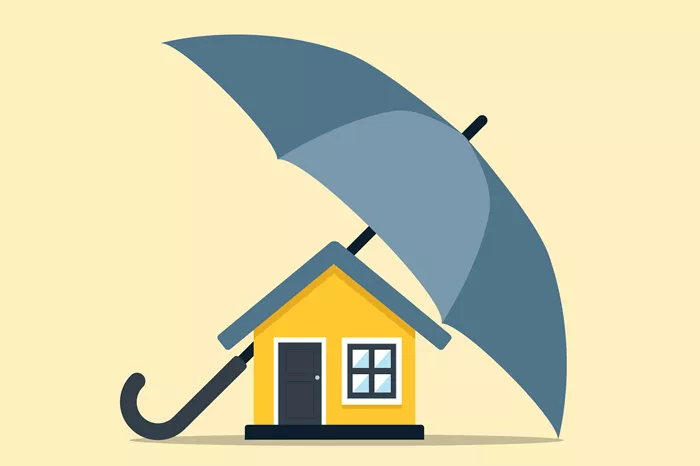Replacement cost home insurance is a vital component of a robust homeowners insurance policy, providing peace of mind by ensuring that you can rebuild or replace your home and belongings without suffering significant financial loss. This article will delve into the intricacies of replacement cost home insurance, including its definition, how it differs from actual cash value coverage, the valuation process, coverage limits, benefits and drawbacks, the claim settlement process, and factors affecting replacement cost.
Definition of Replacement Cost
Replacement cost home insurance is designed to cover the cost of replacing or repairing damaged property with new items of similar kind and quality, without deducting for depreciation. Unlike other types of insurance that might only cover the current market value of your possessions, replacement cost policies aim to restore your home and belongings to their original state using new materials and items.
For example, if your five-year-old television is destroyed in a fire, replacement cost coverage would pay for a new television of comparable quality and features, rather than the depreciated value of the old television.
How It Differs from Actual Cash Value
Understanding the difference between replacement cost and actual cash value (ACV) is crucial when selecting a homeowners insurance policy.
Replacement Cost Coverage: Pays the amount needed to replace damaged property with new items of similar kind and quality, without considering depreciation. This type of coverage ensures that you can fully restore your home and belongings to their pre-loss state.
Actual Cash Value Coverage: Pays the amount needed to repair or replace the damaged property, minus depreciation. Depreciation accounts for the age, wear and tear, and reduced value of the item over time. As a result, ACV coverage typically pays less than replacement cost coverage and may not fully cover the cost of replacing your property.
For instance, if a 10-year-old roof is damaged, ACV coverage would pay for the roof’s current value, factoring in 10 years of depreciation. In contrast, replacement cost coverage would pay for a new roof of similar kind and quality, regardless of the old roof’s age or condition.
see also: How Much Condo Insurance Should I Get
Valuation Process
Determining the replacement cost of a home and its contents involves a detailed valuation process that insurers use to calculate the amount of coverage needed. Here are the key steps involved:
Initial Valuation: When you first purchase a replacement cost policy, the insurer will conduct an initial valuation of your home and belongings. This often includes:
Home Inspection: An inspector may visit your property to assess its size, construction materials, design, and overall condition.
Property Information: You will provide detailed information about your home, including the number of rooms, square footage, type of roofing and siding, and special features like fireplaces or built-in appliances.
Personal Property Inventory: You may be asked to create an inventory of your personal belongings, listing items, their purchase dates, and original costs.
Regular Updates: Insurers typically require regular updates to the valuation to reflect changes in market conditions, construction costs, and any improvements or additions made to the property. This ensures that your coverage remains adequate over time.
Current Market Conditions: Replacement cost valuations take into account current local construction costs, labor rates, and material prices to provide an accurate estimate of the cost to rebuild your home and replace your belongings.
Coverage Limits
Replacement cost policies come with specific coverage limits that dictate the maximum amount the insurer will pay to replace or rebuild your home and its contents. These limits are set based on the initial valuation and can be adjusted as needed. Key aspects to consider include:
Dwelling Coverage Limit: This is the maximum amount the policy will pay to rebuild or repair your home’s structure. It should be sufficient to cover the full replacement cost of your home, including labor and materials.
Personal Property Coverage Limit: This limit covers the replacement of your personal belongings, such as furniture, electronics, clothing, and kitchenware. It is typically set as a percentage of the dwelling coverage limit, often around 50% to 70%.
Additional Structures: Coverage for detached structures like garages, sheds, and fences, usually set as a percentage of the dwelling coverage limit.
Loss of Use: Covers additional living expenses if you need to live elsewhere while your home is being repaired, usually set as a percentage of the dwelling coverage limit or a specified dollar amount.
Benefits and Drawbacks
Benefits of Replacement Cost Coverage
Comprehensive Protection: Replacement cost coverage ensures that you can fully restore your home and replace your belongings without financial strain, providing peace of mind.
No Depreciation: Unlike ACV coverage, replacement cost policies do not deduct for depreciation, ensuring you receive the full amount needed to replace your property with new items.
Better Quality: Enables you to replace damaged items with new ones of similar kind and quality, maintaining the standard of your home and lifestyle.
Drawbacks of Replacement Cost Coverage
Higher Premiums: Replacement cost coverage generally comes with higher premiums compared to ACV coverage due to the increased payout potential.
Strict Valuation Requirements: The detailed valuation process and regular updates required can be time-consuming and may require professional assessments.
Potential Overestimation: There is a risk of overestimating the replacement cost, leading to higher premiums than necessary.
Claim Settlement Process
Filing a claim under a replacement cost policy involves several steps to ensure you receive the appropriate payout for your losses. The process typically includes:
Report the Loss: Contact your insurer immediately after a loss occurs to report the damage and initiate the claims process.
Assessment: The insurer will send an adjuster to assess the damage and determine the cost of repairs or replacements. You may need to provide documentation, such as receipts, photos, or an inventory of damaged items.
Initial Payment: The insurer may issue an initial payment based on the ACV of the damaged property, allowing you to start repairs or replacements.
Supplemental Claims: Once repairs or replacements are completed, you can submit receipts or invoices to receive additional payments to cover the full replacement cost.
Final Settlement: The insurer will issue the final payment to cover any remaining costs, ensuring that you receive the full amount needed to restore your home and replace your belongings.
see also: How Do I Claim On My Pet Insurance
Factors Affecting Replacement Cost
Several factors can influence the replacement cost of your home and its contents, including:
Local Construction Costs: Variations in labor and material costs in your area can significantly impact the replacement cost.
Quality of Materials: The type and quality of materials used in your home’s construction can affect the cost to rebuild.
Home Features: Special features, such as custom cabinetry, high-end appliances, and unique architectural details, can increase the replacement cost.
Age and Condition: The age and condition of your home may affect the valuation, as older homes with outdated systems or materials may cost more to replace.
Building Codes: Changes in local building codes and regulations may require additional work or materials to meet current standards, impacting the replacement cost.
Conclusion
Replacement cost home insurance offers comprehensive protection by covering the full cost of replacing or repairing your home and belongings with new items of similar kind and quality, without deducting for depreciation. Understanding how replacement cost coverage works, including its valuation process, coverage limits, benefits and drawbacks, and claim settlement process, is crucial for making informed decisions about your homeowners insurance policy. While replacement cost coverage typically comes with higher premiums, the peace of mind and financial security it provides can be well worth the investment. Always consult with an insurance professional to ensure your coverage meets your needs and to stay informed about any changes in policy terms or coverage limits.
FAQs about Replacement Cost vs. Actual Cash Value
1. Which is better, replacement cost or actual cash value?
The choice between replacement cost and actual cash value depends on your needs and circumstances:
Replacement Cost: This type of coverage pays to replace your damaged or lost item with a new one of similar kind and quality without deducting for depreciation. It generally provides more comprehensive protection, ensuring you can replace your belongings fully.
Actual Cash Value: This type of coverage pays the depreciated value of your item at the time of loss. It takes into account the age, wear and tear, and obsolescence of the item, which typically results in a lower payout compared to replacement cost.
Replacement cost is generally considered better for homeowners or policyholders who want to ensure they can fully replace their lost or damaged items. Actual cash value may be more suitable for those looking for lower premiums and who are willing to accept lower reimbursement amounts in the event of a claim.
2. What is the formula for replacement cost?
The formula for replacement cost typically involves estimating the current cost to replace an item or property with a similar one of equal quality and utility. The basic formula is:
Replacement Cost=Current Market Price×Quantity Needed
For example, if you need to replace a roof and the current market price for the roofing materials is $10 per square foot and you need 1,000 square feet, the replacement cost would be:
Replacement Cost=10×1,000=$10,000
3. What is the difference between original cost and replacement cost?
Original Cost: This refers to the price you initially paid to purchase an item or property when it was new. It reflects the historical purchase price at the time of acquisition.
Replacement Cost: This refers to the amount it would cost to replace the item or property with a new one of similar kind and quality at current market prices. It reflects the present-day cost to replace the asset.
The main difference is that original cost is based on past prices, while replacement cost is based on current prices. Over time, due to factors like inflation, technological advancements, and changes in market demand, replacement cost can be significantly higher than the original cost.
4. What is the difference between selling price and replacement cost?
Selling Price: This is the price at which an item or property is sold in the market. It is determined by market conditions, demand, and the item’s perceived value by buyers. The selling price can vary widely based on factors such as location, condition, and market trends.
Replacement Cost: This is the cost to replace an item or property with a new one of similar kind and quality at current market prices. It is a measure of what it would take to acquire a comparable asset in today’s market.
You Might Be Interested In




















